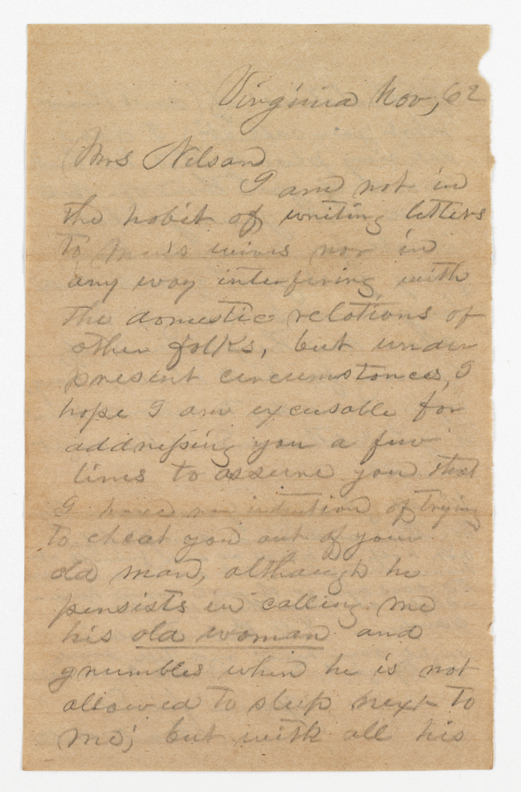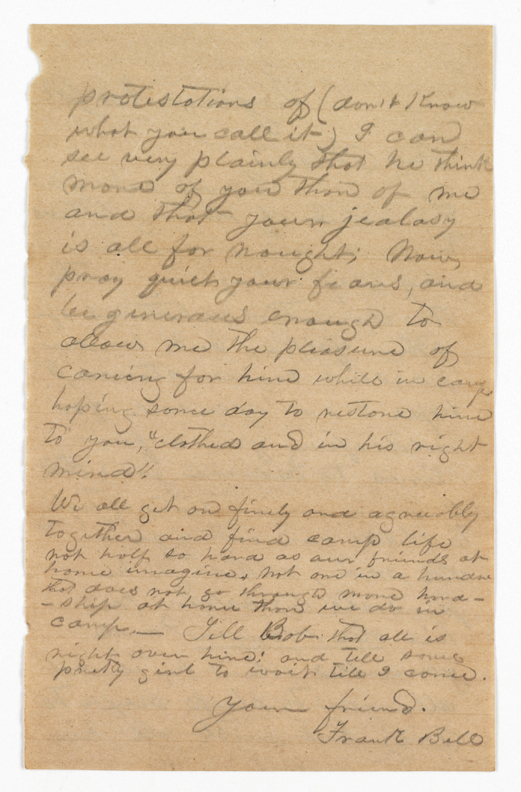Though it has torn many asunder, war has also brought people together. Take, for instance, two members of Company D of the 57th North Carolina Infantry. This regiment was formed in Forsyth County, North Carolina, on July 4, 1862. Benjamin Franklin “Frank” Bell of Stanly County was twenty-one and enlisted as a private. William T. Nelson of Forsyth County was thirty-one and joined as a corporal. By November 1862 the men were in Virginia, moving between Fredericksburg and Richmond, hoping they would soon be settling in winter quarters. From the references William makes in his letters to his wife, Ann T. (Crawley) Nelson, it’s obvious that he and Frank were sharing quarters. In his letter of November 17, William mentions that Frank is also writing a note to Ann; here is a transcription of the first of the two surviving letters he wrote to her:
Camp, Nov, 62
Mrs. Nelson
I am not in the habit of writing letters to men’s wives nor in any way interfering with the domestic relations of other folks, but under present circumstances, I hope I am excusable for addressing you a few lines to assure you that I have no intention of trying to cheat you out of your old man, although he persists in calling me his old woman and grumbles when he is not allowed to sleep next to me; but with all his protestations of (don’t know what you call it) I can see very plainly that he thinks more of you than of me and that your jealosy is all for naught; Now pray quiet your fears, and be generous enough to allow me the pleasure of caring for him while in camp, hoping some day to restore him to you, “clothed and in his right mind.”
Your friend,
Frank Bell


